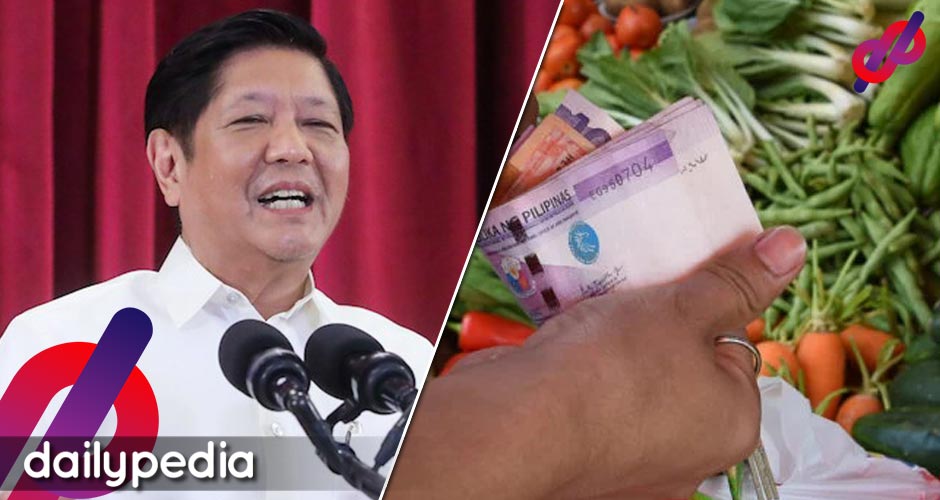Pres. Bongbong Marcos was blasted by netizens after promising that the inflation rate in the country would drop in 2023.

Marcos stated that on Tuesday, it is expected that prices will decrease in the second quarter. This is due to the government’s efforts to manage inflation which has affected the majority of commodity groups.
According to Marcos, tactics used to lower the unrelenting high prices, such as importing food to supplement a scarce supply, take time. Marcos remarked, “My continuing estimate or forecast is that by — we can see the lowering of inflation by the second quarter of this year.”
Unfortunately, Marcos’ prediction didn’t come true as the unexpectedly accelerated 8.7% year-on-year in January, faster than the 8.1% clip recorded in December, the Philippine Statistics Authority reported. The figure also exceeded the central bank’s forecast of 7.5% to 8.3% for the month.
Netizens then criticized the president for not doing enough.
if u know me and u voted Marcos, please just don’t tell me. okay na yung kilala mo ako or friends tayo. nakakainis lang kase na we’re suffering and tumataas ang inflation tapos yung pinaupo nio walang progress na pinapakita. tapos kitang kita pa pangagago sa bansa.
— dewott ✨ (@jromeexe_) February 7, 2023
lols pic.twitter.com/UItGCwRXzZ
— Malacañang Events and Catering Services (@MalacananEvents) February 7, 2023
YAN ANG SAGOT AT PLANO NI MARCOS JR. SA MATAAS NA INFLATION…. SO UNFORTUNATE! KAYA ANG MGA MAMAMAYAN UNFORTUNATELY NAGHIHIRAP UNDER HIS WATCH ???? https://t.co/OihGyp3H4y
— Pilosopo Tasyo (@KaTasyoPilosopo) February 8, 2023
lmao either marcos said the taxes thing because he's either stupid or doing a diversion from the nth time inflation's increasing
— Cesar Carlos (@heycesarcarlos) February 8, 2023
To describe the rising inflation as "unfortunate" only means that Marcos Jr does not have a concrete plan to steer the Philippine Economy. He gets a lot of "pledges" but this will not address the rising inflation or incidence of hunger, unfortunately. https://t.co/Iih9mFZiLz
— carparker24 (@carparker2401) February 8, 2023
Pati stock market bumagsak dahil sa taas ng inflation. Iyan ang galing ni Marcos Jr. at may plano daw siya. Ano lalong itaas pa ang inflation? https://t.co/31iPSue7sH
— Dissenting Voice (@voxdissentiens) February 7, 2023
16% ang overall inflation sa NCR. Nasaan ang sinasabing plano ni Marcos Jr?
— Dissenting Voice (@voxdissentiens) February 7, 2023
The increase presents a challenge for the Central Bank as it prepares for its next interest rate evaluation on February 16th. Felipe Manguiat Medalla, a Filipino economist currently serving as the Governor of the Bangko Sentral ng Pilipinas previously stated that inflation could have reached its highest point in December. He mentioned over the weekend that the upcoming review “will concentrate on inflation expectations in the Philippines, not on the 25 basis point rate hike by the US Federal Reserve.”
The rise in commodity prices could result in additional interest rate hikes in the Philippines after the central bank raised its key rate by 3.5 percentage points in 2022.
According to the national statistics agency, the main contributor to the overall increase in prices was housing, water, electricity, gas, and other fuels. These items saw a collective 8.5% yearly increase in January compared to 7.0% in December.
Food inflation also increased to 10.7% from 10.2% in December, due to higher prices for vegetables such as onions. The country has faced a shortage of agricultural supplies, leading Marcos who also serves as agriculture secretary, to support more imports.
Marcos referred to food inflation as an “emergency” and described the latest inflation report as “unfortunate” on Tuesday. He mentioned that the recent importation of agricultural products to increase local supply “will reduce prices, but it will take some time.”
The National Statistician, Dennis Mapa, informed reporters on Tuesday that core inflation, which does not include volatile items such as fish, meat, vegetables, and electricity, increased to 7.4% last month, which is the fastest rate since April 1999. Mapa stated, “As a consumer, I would say that that’s already the peak. Our risk is really the prices of food.”
The increase in prices is considered a threat to the Philippines’ economic performance.


